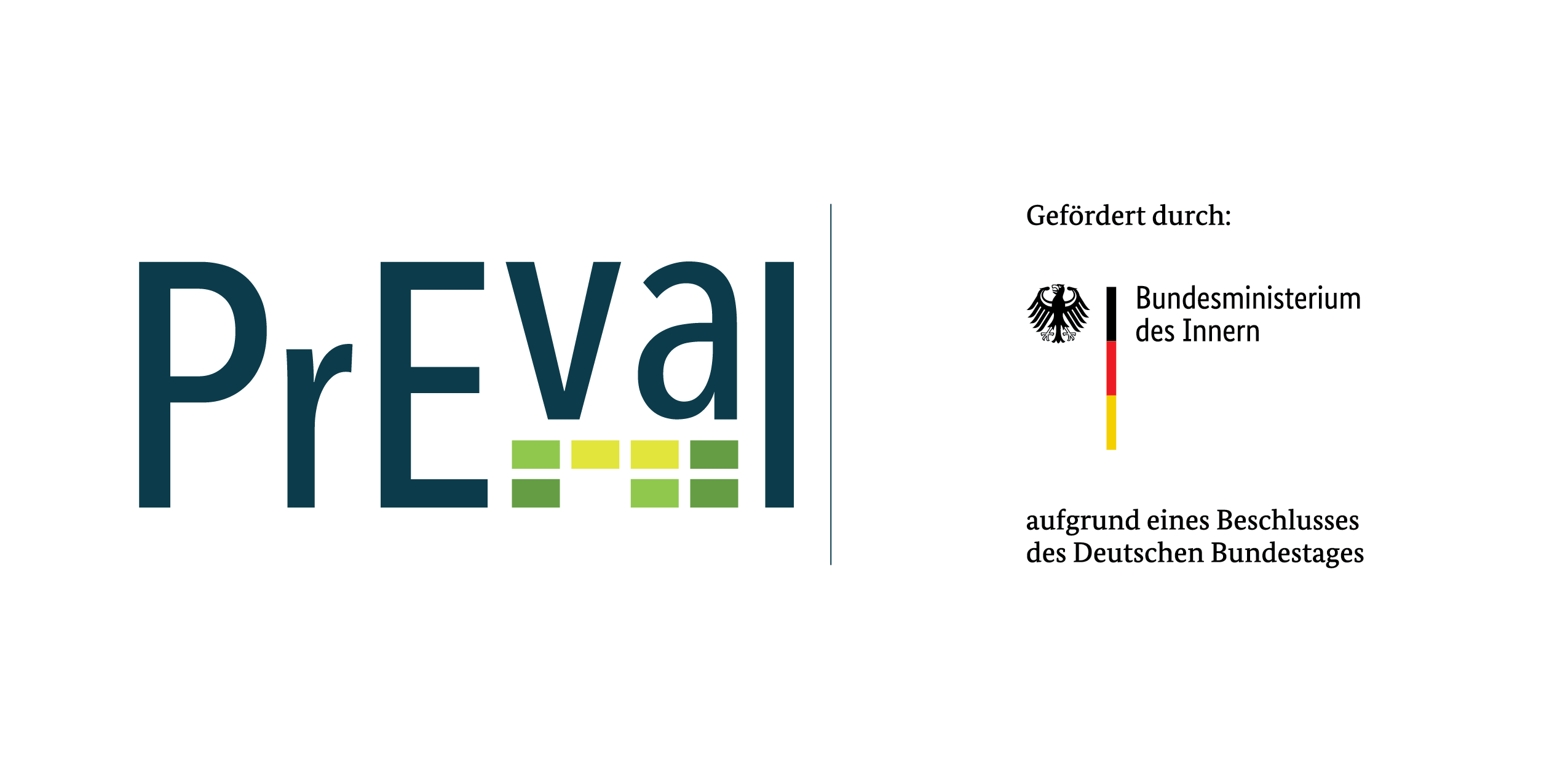Holding Ground in Preventing Violent Extremism
Avoiding Stagnation in P/CVE and Evaluation

Preventing violent extremism requires an understanding of what works, under which conditions, to stop radicalization and violence. Evaluation – the systematic assessment of activities and interventions – is crucial for this understanding and to improve prevention in practice. In this report, we present and analyze current trends in violent extremism as well as practices, innovations and challenges in the evaluation of activities to prevent and counter violent extremism (P/CVE), and related fields, across 12 countries: Australia, Canada, Czechia, Côte d’Ivoire, Indonesia, Kenya, the Netherlands, Norway, Spain, Tunisia, the United Kingdom, and the United States.
The results are based on the second iteration of an international expert monitoring survey conducted in late-2024, building on a first iteration conducted in mid-2023. The survey dives deeper into key issues and compares expert assessments of the P/CVE and evaluation field over time. Based on the best practices, trends and challenges identified in this study, we develop recommendations for stakeholders to improve P/CVE evaluations and practice.
Main Findings
- Violent extremism: In our second international expert survey, among 30 respondents in 12 countries, we find that violent extremism motivated by radical Islamist and far-right ideologies is persistent, yet new challenges are arising in many places. Experts increasingly worry about ideologically fluid forms of extremism, such as anti-government or “hybrid” extremism.
- Prevention: Experts increasingly advocate for a shift from primarily ideology-focused preventing and countering violent extremism (P/CVE) efforts to an emphasis on holistic violence prevention. The rise of ideologically fluid extremism and other evidence show that ideology or religion tend to play a more minor role in a person’s journey toward violent extremist acts than other, non-ideological, individual and systemic drivers of violent radicalization, such as inadequate social support networks or experiences of injustice, hardship and inequality.
- Evaluation: The field of evaluating what works in preventing violent extremism seems to be stagnating. Compared to our first round of international monitoring in 2023, experts this time report that evaluation frequency remains unchanged, the number of already limited funding opportunities has further declined, methodological innovation is scarce, transparency around findings has decreased, and evaluation capacity gaps persist without adequate countermeasures.
- Reasons for Stagnation: Possible causes for stagnation include funding cuts and the field of P/CVE becoming increasingly politicized in many countries, where extremist ideologies have moved into the political mainstream in recent years. This, alongside the fact that many “easy wins” in establishing a P/CVE evaluation practice have been implemented, means governments are poorly incentivized to consistently invest in systems of high-quality, learning-oriented evaluation to improve the prevention of violent extremism — but it is important that they keep doing so.
Recommendations
1. All P/CVE stakeholders should focus on building mutual trust and should approach evaluations as opportunities to achieve more coherent and effective prevention efforts. Where extremist ideologies have moved into the political mainstream or positions of power, there is an increased risk of P/CVE being driven by ideology rather than by accountability, evidence and learning. Stakeholders should pay close attention to these dynamics and invest in the constructive relationships needed for learning-based improvements in P/CVE.
2. Funders should continue to invest in and support exchange among all P/CVE stakeholders.
- Wherever possible, funders should support and enable the sharing of evaluation results and lessons learned, even if results are redacted or summarized for confidentiality. For example, findings may be shared through accessible evaluation databases or dedicated discussion formats.
- Funders should invest in exchange formats that facilitate dialogue and foster informal connections between practitioners, researchers, evaluators, and policymakers. These formats should provide room for discussion of whether and why the evaluation field is stagnating, and how stakeholders can join forces to sustain progress.
- Wherever appropriate, stakeholders should ensure that formats for sharing evaluation results, research findings and experiences include exchanges and discussions on evolving extremism trends – such as hybrid and ideologically fluid extremism, the mainstreaming of radical and extremist beliefs, and non-ideological roots of radicalization – and their impact on P/CVE efforts and evaluations.
3. Stakeholders should ensure adequate funding for high-quality evaluations and make strategic, learning-driven investments, particularly as budgets shrink.
- Funders should provide resources for the evaluation of P/CVE activities they support. Where grants cover evaluation costs, funders should require implementers to budget for evaluations at the proposal stage, and implementers should earmark such funds accordingly from the project outset.
- To enable implementers to conduct or commission evaluations at their own initiative, funders should develop dedicated funding mechanisms.
- Across all types of evaluation funding, stakeholders should encourage the involvement of independent experts as third-party evaluators or advisors.
4. Stakeholders should invest in building the capacity of implementers and government officials to conduct and manage high-quality evaluations and learning processes.
- Stakeholders should prioritize developing and strengthening evaluation support and capacity-building formats that facilitate exchange and coordination, such as professional networks, interactive training and knowledge hubs.
- Stakeholders should ensure that such evaluation-support and capacity-building formats build on each other rather than funding fragmented, one-off efforts that duplicate existing structures.
5. Stakeholders should ensure that evaluations follow learning strategies with clear uptake mechanisms.
- Governments and implementers should develop uptake mechanisms that ensure evaluation results feed into efforts to improve extremism prevention policies, strategies, programs, and activities.
- Funders and implementers should set goals for evaluation uptake together and agree to engage with possible negative evaluation results for further learning, rather than as a mere performance review of implementers.
6. Stakeholders should beware of the risks of stagnation in the P/CVE evaluation field and should work to preserve critical knowledge, expertise and networks, while addressing past shortcomings.
For more details on the state of P/CVE evaluation and how progress can be made, read the full report.

This research was funded by the Federal Ministry of the Interior as part of the project “Evaluation and Quality Management in Extremism Prevention, Democracy Promotion and Civic Education: Analysis, Monitoring, Dialogue (PrEval).”
More information on PrEval can be found here and on the project’s website.





